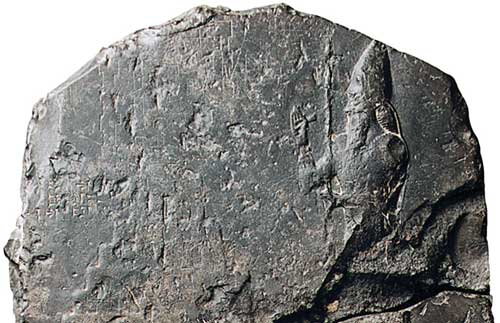Political events and social situations sometimes catch Christians off guard. Christians are used to thinking about the will of God for their own individual lives. When it comes to personal crises and circumstances, they know that he is in control and look to him prayerfully for what he is doing. But when it comes to societal change, Christians are sometimes surprised by the apparent incongruence between unfolding events and what they expect that God should be doing.
When Christians examine the plans of God for human societies, they need to gain a larger vision for what he has in mind. The Scriptures are not shy about God’s sovereign will, and his people can gain much by studying how God handles the peoples and whom he has appointed to rule over peoples.
When Moses addressed the people of Israel on the plains of Moab, looking across the Jordan River on his last day on this earth, some things he said likely surprised the people. Moses reminded the people that God had declared off-limits the lands belonging to some of Israel’s bitter enemies. Moses said, “When you approach the territory of the people of Ammon, do not harass them or contend with them, for I will not give you any of the land of the people of Ammon as a possession, because I have given it to the sons of Lot for possession” (Deuteronomy 2:19 ESV). The Israelites could be surprised at this restriction. Why would God protect the land holdings and rights of the perpetually cursed Ammonites, a nation born of a drunken, incestuous plot by Lot’s daughters (Genesis 19:30-38)? The Lord also granted a place for both the Edomites and the Moabites — also bitter enemies of Israel (Deuteronomy 2:5, 9).
God’s plans for Israel are more sweeping than even this political moment in the wilderness. The Song of Moses retells from a new angle the story of the tower builders from the book of Genesis. Moses says, “When the Most High gave to the nations their inheritance, when he divided mankind, he fixed the boundaries of the peoples according to the number of the sons of God” (32:8). The account in Genesis 11 focused on the judgment of God against arrogant tower builders trying to make a name for themselves. When Moses rehearses that same event in his song, he focuses, more positively, on God granting these nations an inheritance. Moses also points out that by giving the other nations their places, God reserved a special place for his people Israel: “But the Lord’s portion is his people, Jacob his allotted heritage” (32:9). God’s action towards the nations, even in judgment, cannot be too narrowly pinned down. God reveals to readers his judgment of the tower builders, but that judgment also simultaneously provides for both the nations and Israel.

Christians are not only surprised by the way nations and societies have been shaped, but sometimes by the rulers that God sets over peoples. The prophet Jeremiah explains how the Lord has appointed Nebuchadnezzar (605–562 BCE), the tyrant king of the Neo-Babylonian empire, to be “my servant” and to bring judgment against Israel and the nations (Jeremiah 25:9; 27:6; 43:10). Nebuchadnezzar seems like the last person many might consider God’s choice to serve him. God’s way of bringing about his will is functioning on a higher plane, so the prophet calls his people to a higher vision.
God may even use political decisions motivated by political ends to accomplish his own will. A good example is the religious tolerance of Cyrus, emperor of ancient Persia (539-530 BCE). When he conquered Babylon, he allowed some of the oppressed peoples of the former Neo-Babylonian empire to return to their homelands and re-establish their religious practices — among these, the people of Judah set to work rebuilding the temple. Long before Cyrus’ expedient political maneuvers, the prophet voiced God’s will in bringing this about: “Cyrus, he is my shepherd, and he shall fulfill my purpose” (Isaiah 44:28) and “Thus says the Lord to his messiah, to Cyrus, whose right hand I have grasped to subdue nations before him” (45:1).
In hindsight, readers might be surprised by what the Lord says through the apostle Paul. Writing under the emperorship of Nero (54–68 CE), Paul states categorically, “Let every person be subject to governing authorities. For there is no authority except from God, and those that exist have been instituted by God” (Romans 13:1). Some may be more comfortable adding some qualifications for an emperor such as Nero.
Long ago, God had plans for peoples from questionable backgrounds with questionable moral standards, even Israel’s bitter enemies. Some historical rulers make people cringe, but the prophets and the apostles reveal God’s plans that are beyond political analysis and historical critique. His choices may sometimes be unexpected. Each era’s political and social situations require careful attention to the Word of God and prayerful devotion.
Dr. Gary Schnittjer ’89 serves as professor of Old Testament in the School of Divinity, where he has taught since 1997. He is also the author of The Torah Story: An Apprenticeship on the Pentateuch (Zondervan, 2006). He can be reached by emailing
gschnittjer@cairn.edu.